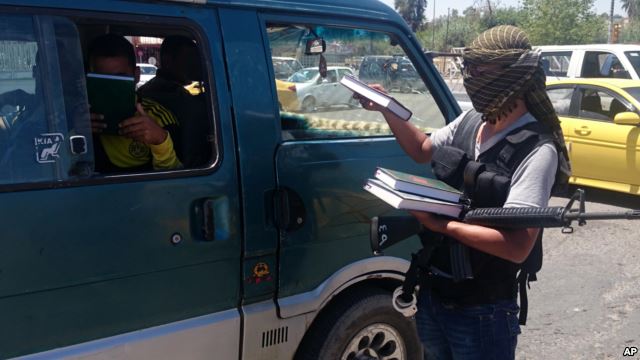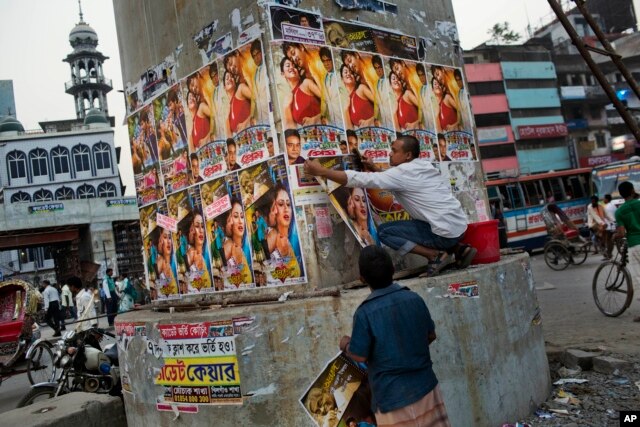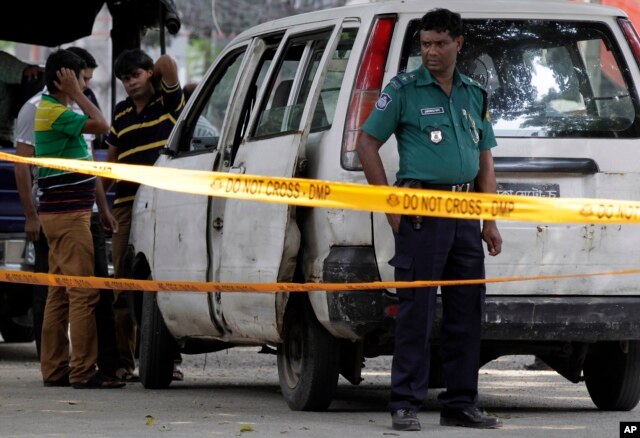
Police in Bangladesh are tapping Islamic scholars and clerics to combat the rise of Islamist militancy in the country. The religious leaders are drafting a fatwa, or edict, condemning the activities of the Islamic State and Bangladeshi Islamist militant groups as “un-Islamic.”
“The fatwa is to be jointly signed off by 100,000 Islamic scholars from across the country,” said Maulana Fariduddin Masoud, chairman of Bangladesh Jamiatul Ulama, or BJU, a national body of Islamic scholars in the country. “It identifies IS and its local Islamist militant supporters — who are killing people and indulging in terrorist activities in Bangladesh and elsewhere — as not just the ‘enemies of Islam’ but also ‘enemies of the Muslims.’ “
BJU has taken the lead role in mobilizing the clerics and scholars for the fatwa. The group is training the country’s tens of thousands of mosque leaders “in an effort to take the campaign against the Islamist militants to the grass-roots level,” Masoud said.
“Through their khutbas [sermons], the mosque leaders will explain to the people how IS and other Islamists are resorting to violence and acting against the tenets of the Quran and the Hadith,” he said.
FILE – A Bangladeshi man glues movie posters in Dhaka, Bangladesh, Nov. 5, 2015. Fear ran high following months in which four bloggers and three other people were killed.
Following a meeting with the leader of the BJU at the police headquarters in Dhaka on Thursday, Inspector General AKM Shahidul Hoque approved the BJU’s plan to counter IS and other groups with the fatwa and the campaign using the mosques.
“Some groups are misinterpreting Islam’s teachings and spreading militancy and violence in the country,” Hoque said. “We are hopeful that our clerics will succeed to counter these subversive forces with their special campaign through the Friday sermons at the mosques and other Islamic programs.”
Violent attacks
Bangladeshi authorities sought the cooperation of Islamic leaders amid concerns about rising Islamist militancy in the country in recent months.
Several secular bloggers and a publisher were hacked to death this year and gunmen killed two foreigners, as well.
The October bombing of a Shi’ite Muharram procession killed two people. Last month, unidentified gunmen killed the muezzin of a Shi’ite mosque in the Bogra district. In recent weeks, more than 30 Christian clergy members and aid workers in Bangladesh have received death threats.
IS and local hard-line Islamist groups like Ansarullah Bangla Team and Jama’atul Mujahideen Bangladesh claimed responsibility for the attacks and threats.
FILE – Members of Bangladeshi police and detective branch stand by the site a man was gunned down in Dhaka, Bangladesh, Sept. 29, 2015. Islamic militants claimed responsibility.
Earlier this week, Prime Minister Sheikh Hasina told an American delegation that IS did not have a foothold in the country.
Her government says domestic Islamist groups backed by opposition parties are responsible for the surge in militancy in the country.
Masoud said that, following the tactics of IS, domestic militants are brainwashing young Muslims with distorted interpretations of the Quran and Hadith and forcing them into subversive activities.
“Then the campaign through the Friday khutbas will help people understand the true spirit of Islam, which in turn will make them understand how IS and other local militant groups are acting against Islam’s teachings,” Masoud said.
“We are sure that our fatwa and campaign can succeed to a good extent to keep the vulnerable young people away from the influence of militancy in the name of Islam.”
Many optimistic
Retired Major General Mohammad Abdur Rashid, executive director of the Institute of Conflict, Law & Development Studies, said the strategy could pay off, since many militants become radicalized in the mosques and madrassas.
“It has been found that many in Bangladesh turned to militancy, being motivated into jihad by some radical, not-so-high-profile clerics,” Rashid told VOA. “If renowned Islamic scholars come into play issuing mass fatwa and preaching peace with the right explanation of Islam, space for violent extremism will definitely shrink in the country.”
Church leaders in Bangladesh welcomed the action by the Islamic scholars and clerics.
“The high-profile Islamic scholars and clerics have united to fight the Islamist militancy,” William Proloy Samadder, organizing secretary of the Bangladesh Christian Association, told VOA. “They are influential. I am sure that their moves will have a good impact in the Muslim-majority Bangladesh.
“I hope that they will be able to mobilize the society and corner the Islamists to a good extent.”
Source: VOA










